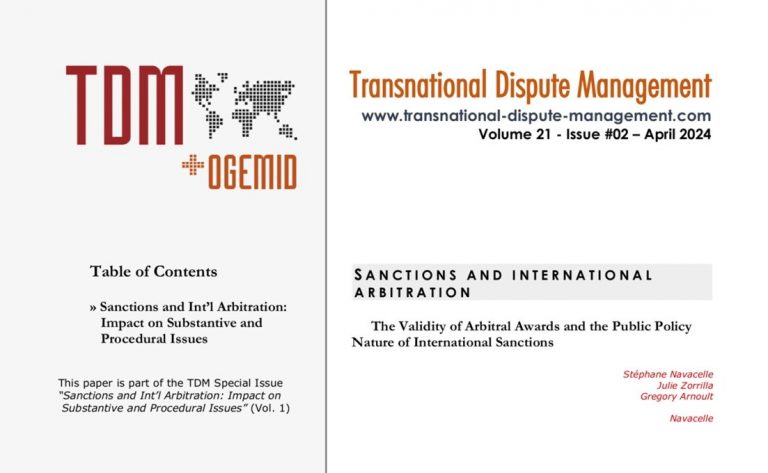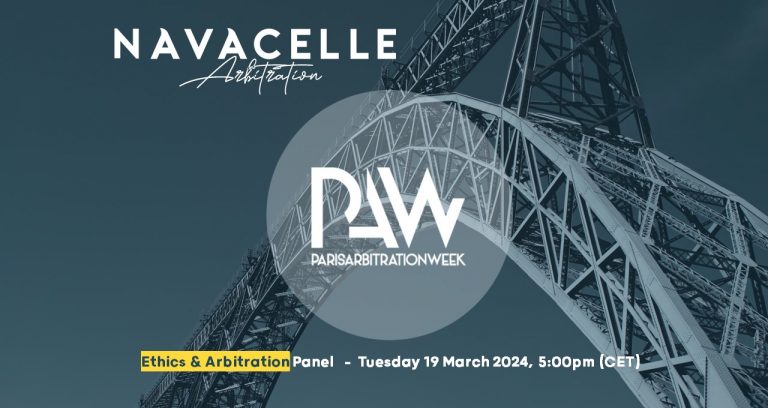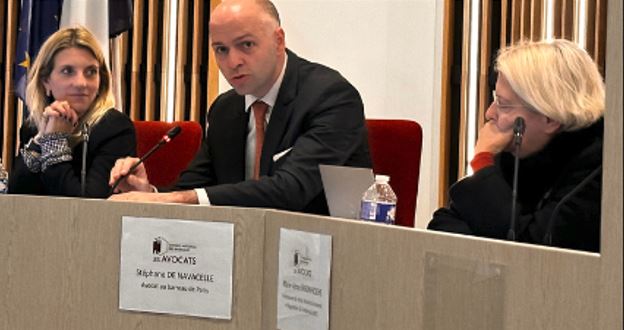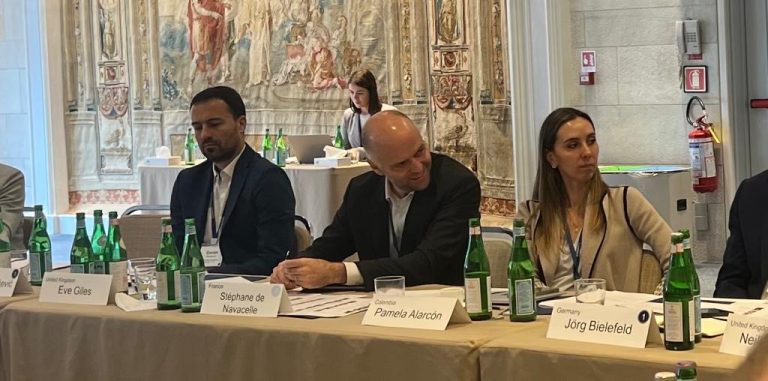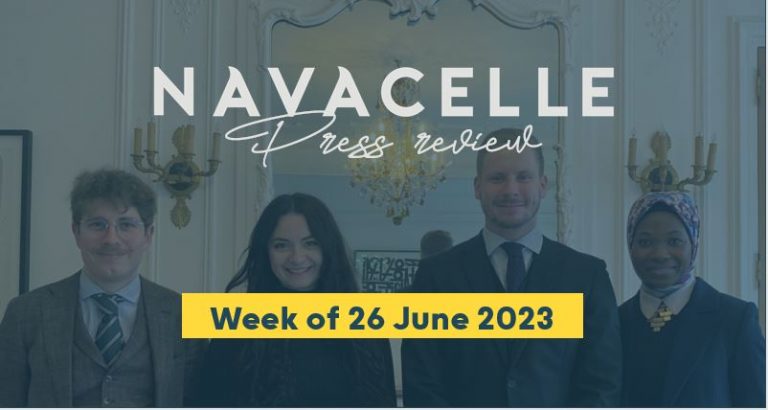Cases rendered by French courts in the past year, involve a string of decisions related to enforcement on frozen assets in the context of international sanctions (I) and the treatment of corruption allegations before or after the introduction of arbitral proceedings (II). Courts have also addressed issues related to public policy in the context of overriding mandatory rules (III) and lack of independence and impartiality of arbitrators (IV).
Attachments of frozen assets are subject to prior authorization
A string of decisions has been rendered by the Cour de cassation (the French Supreme Court) and the Court of Appeal of Paris in cases involving Council Regulation (EU) No. 2016/44 of 18 January 2016 concerning restrictive measures in view of the situation in Libya, which notably froze funds held abroad by the Libyan Investment Authority (“LIA”), the Libyan sovereign fund.[1]
These decisions have been rendered further to the decision of the Court of Justice of the European Union (“CJEU”) dated 11 November 2021 on a question referred for a preliminary ruling related to Council Regulation (EC) No. 423/2007 concerning restrictive measures against Iran which provided freezing measures similar to the ones taken against Libya.[2] In this decision, the CJEU ruled that the notion of freezing assets arising out of Regulation No. 423/2007 prevented taking interim measures granting the creditor priority over certain assets of the debtor without prior authorization.[3]
In several decisions dated 7 September 2022, the Cour de cassation adopted this case law of the CJEU, ruling that the solution taken on the grounds of the Iranian sanctions was applicable to the Libyan sanctions.[4]
These cases related to attachments taken by company Mohamed Abdel Mohsen Al-Karafi & Sons (“Al-Kharafi”) on assets of the LIA and its subsidiary, the Libyan Arab Foreign Investment Company (“LAFICO”), on the basis of an arbitral award that found the Libyan State liable.
In two decisions dated 6 June 2019, the Court of Appeal of Versailles ruled that the attachments taken on financial products held by the LIA were invalid as these assets were used or destined to be used for public purposes.[5] The Court of Appeal of Paris, in a decision dated 5 September 2019, had itself ruled that the LIA was an emanation of the State and that its assets could be attached as they were not specifically used or destined to be used for non-commercial public purposes.[6] The parties filed appeals against these decisions. The LIA filed a recourse against the decision of the Court of Appeal of Paris dated 5 September 2019,[7] and Al-Kharafi filed an recourse against the decisions of the Court of Appeal of Versailles dated 6 June 2019.[8]
The grounds for appeal also related to issues of sovereign immunity and renunciation thereof and the notion of emanation of State. However, the Cour de cassation, in its decisions, ruled on a ground raised ex officio related to Regulation (EU) No. 2016/44 abovementioned and in relation to which the Court had stayed the proceedings in waiting for the decision of the CJEU of 11 November 2021.
Adopting the rational of the CJEU, the Cour de cassation rejected the recourse against the decisions of the Court of Appeal of Versailles, with the effect of lifting the attachments taken by Al-Kharafi. It also quashed the decision of the Court of Appeal of Paris and, in doing so, it adopted the motivation of the CJEU ruling that “no enforcement measure with the effect of removing from the estate of the debtor, or of conferring to the pursuing creditor a simple preferential right, can be carried out on frozen funds or economic resource with our prior authorization of the directory of the Treasury”.[9] The Court stated that this solution was “necessary to ensure the efficiency of restrictive measures”,[10] which have a preventive reach and aim at ending the menace that the targeted entities represent for the stability and the security of Libya and its safe political transition.[11] The Cour de cassation, noting that the assets held in France by the LIA which had been attached were frozen in application of Regulation (EU) No. 2016/44, and that no prior authorization for unfreezing these assets had been obtained from the General Directorate of the Treasury,[12] therefore ruling in favor of the LIA and respectively ordered, and confirmed, lifting the attachments.
In the same case, the Court of Appeal of Paris also rendered a new decision dated 2 February 2023, adopting the ruling of the abovementioned decisions of the Cour de cassation.[13] In this decision, it ruled that the authorization to unfreeze the funds must be obtained prior to the enforcement measure,[14] that in the absence of such authorization, enforcement measures are invalid,[15] and that the authorization from the General Directorate of the Treasury must be obtained prior to requesting the authorization of the enforcement judge in application of Article L. 111-1-1 of the Code of the Enforcement Civil Procedures, because of the primacy of European Union law over national law.[16]
A similar solution has been adopted by the Court of Appeal of Paris in a decision rendered on 26 January 2023 between company SASU Financière CER (“Financière CER”) and SASU Compagnie des exploitations réunies (“CER”), as appellants, and Tunisian law company Siba Plast, as respondent, related to the enforcement of an arbitral award rendered on 28 November 2014 in favor of the latter against the Libyan State. In enforcing the award, Siba Plast had seized shares and securities’ rights held by CER, rents owed by company FNAC Paris to CER and assets of CER and Financière CER in the accounts of bank BIA.[17] Before the Court of Appeal, the appellants argued that the enforcement measures were invalid because the arbitral award was not rendered against them but rather against the Libyan National Transitional Council, and because the assets attached were frozen.[18]
In its decision, the Court first ruled that although the arbitral award had been rendered against the Libyan National Transitional Council, this entity was an internal organ of the Libyan State, which it represented. Accordingly, the Court deemed that the arbitral award had been rendered against the Libyan State.[19]
The Court then examined whether the assets of Financière CER and CER, as emanations of the Libyan State, could be seized. For that purpose, the Court found that CER was held entirely by Financière CER, itself held entirely by LAFICO, in turn held entirely by LIA, the Libyan sovereign fund. The Court also noted that it previously found in its 5 September 2019 decision that LAFICO and LIA were emanations of the Libyan State.[20] Finally, the Court noted that the Libyan State exercised indirect control of the appellants, via LIA and LAFICO which it supervised.[21] The Court also noted that the chain of ownership was proof of an “interconnection of the assets” and that the sole purpose of CER and Financière CER’s activity was to pay dividends to LAFICO.[22]
However, concerning the issue of the asset freeze and the effect of Regulation (EU) No. 2016/44 of 18 January 2016, the Court applied the case law resulting from the ruling of the CJEU dated 11 November 2021. In the present case, although the Court noted that neither CER nor Financière CER were listed in the Regulation, LIA, which they are dependent of, was listed,[23] such that the assets seized were frozen for the purposes of the Regulation. As a consequence, because the enforcement measures were taken without the prior authorization of the General Directorate of the Treasury, the seizures must be lifted.[24]
These cases confirm the primacy of the diplomatic and political objectives of international sanctions, with its economic consequences set aside, as enforcement measures become harder to take. The Court of Appeal, in its decision dated 26 January 2023, adopts the motivation of the CJEU as it results from its decision of 11 November 2021 according to which the “measures freezing funds or economic resources aim at avoiding the relevant asset from being used for improper purposes, and that it is legitimate and even mandatory that this notion of freezing be interpreted widely, even if this can have negative consequences, even considerable ones, for operators, even those that are not responsible for the situation that has led to those measures being taken”,[25] while, in its decision dated 2 February 2023, the Court confirmed that freezing measures did not disproportionately affect the rights of creditors, ruling that “the imperatives related to peace, stability and security in Libya, and for the success of its political transition, justify the considerable negative consequences for third-parties affected in their property rights”.[26]
Allegations of corruption before and after arbitral proceedings
On 7 September 2022, the Cour de cassation rendered a decision in the Sorelec case related to the control of the compliance of the arbitral award with international public policy in the context of corruption allegations and provided clarifications on the nature of this control.[27]
This case involved a dispute a between French company Société orléanaise d’électricité et de chauffage électrique (“Sorelec”) and the Libyan government over the performance of a construction contract. This dispute was resolved through a settlement agreement between the parties, ratified by an arbitral tribunal in a partial award. Because of Libya’s failure to comply with the partial award, the arbitral tribunal then rendered a final award finding Libya liable for damages in the amount of the settlement agreement.[28] Libya brought a challenge against the partial award before the Court of Appeal of Paris arguing that it violated international public policy because the settlement agreement had been obtained through corruption. In a decision dated 17 November 2020, the Court of Appeal of Paris had annulled the partial award finding that there was sufficiently serious, precise and consistent evidence that the settlement agreement had only been concluded because of corruption of the Minister of Justice by Sorelec.[29] Sorelec filed an appeal before the Cour de cassation.
In relation to the first ground raised by Sorelec, whereby Sorelec argued that Libya had breached its duty of loyalty by having only raised the corruption allegations before the annulment judge and not the arbitral tribunal, the Cour de cassation ruled that “substantive international public policy cannot be conditioned by the attitude of a party before the arbitrator”, such that the alleged disloyalty of Libya was inoperative.[30] The Court therefore confirmed that grounds related to substantive international public policy, which are out of the parties’ control, can be raised at any stage of the proceedings.[31]
In its second ground, Sorelec criticized the appellate decision for having performed a review of the award on the merits by examining again certain factual and legal elements and even relying on elements not submitted to the arbitral tribunal. The Cour de cassation, adopting a broad wording which raises doubt as to the reach of its solution,[32] confirmed the decision of the Court of Appeal and ruled that the annulment judge is not limited in its review of any factual or legal element related to the grounds of annulment listed in Article 1520 of the Code of Civil Procedure.[33] The Cour de cassation therefore ruled that the appellate judges were entitled to examine the entire set of evidence in relation to the corruption allegation, whether they were submitted to the arbitrators or not.[34]
This decision reinforces previous case law of the Cour de cassation and of the Court of Appeal of Paris concerning the extensive control of compliance of awards with international public order, especially in the context of corruption allegations.[35] Such a control has also been applied by the Court of Appeal of Versailles in its decision dated 14 March 2023 in the Alstom v. ABL[36] However, in this case, as in the Alstom case, the reviewing judges have allowed for an unlimited review to the detriment of procedural loyalty, leading some authors to criticize a position leading to a genuine review on the merits of awards.[37]
The Cour de cassation has also rendered a decision in a case involving a breach of contract in the context of corruption allegations. In a decision dated 11 January 2023, the First Chamber quashed a decision of the Cour of Appeal of Aix-en-Provence dated 11 June 2021 which ordered Airbus Helicopters to pay a provisional amount allegedly due to Alelk Company for General Trading Ltd (“Alelk”).[38]
After the French Parquet national financier, the British Serious Fraud Office and the U.S. Department of Justice opened investigations for alleged corruption within the Airbus group, Airbus Helicopters had suspended its payments to Alelk, with which it had concluded consultancy contracts for the negotiation of sales of helicopters with the Iraqi government, pending the results of an internal audit of its professional relationships in light of anti-corruption legislation.[39] Despite the existence of an arbitration agreement, but before any arbitration proceedings were introduced, Alelk seized the interim relief judge on the basis of Article 873 of Code of civil procedure[40] to request an order for provisional payment of the amount Alelk argued was due to it under the consultancy contracts.[41] The Court of Appeal held that Alelk was entitled to request interim relief on the basis of Article 1449 of the Code of Civil Procedure[42] and ordered Airbus Helicopters to pay a provisional amount, because its obligation to pay was not seriously questionable, notably because the “reality of the commercial exchanges between the parties is attested, although most often under an elliptic form from both parties”.[43]
In quashing the decision of the Court of Appeal for lacking a legal basis, the Cour de cassation held that the Court of Appeal did not take into account Alelk’s failure to provide written activity reports, which were a condition of its payments.[44] This decision ensures that anti-corruption provisions are not avoided through interim measure requests by relying on a contractual compliance duty which serves to justify suspension of payments.
Failure to take into account overriding mandatory rules does not necessarily lead to a breach of international public policy
On 17 May 2023, the Cour de cassation rendered a decision involving the failure by an arbitral tribunal to take into account a French overriding mandatory rule, quashing a decision of the Court of Appeal of 19 October 2021 which has denied recognition of an award on that basis. The dispute opposed American company Monster Energy Company (“Monster Energy”) to company Sainte Claire over the termination by the former of a distribution contract governed by Californian law of its products in French Guiana.[45] In its award rendered on 31 May 2017, the arbitral tribunal had ruled that this termination was valid and had found Sainte Claire liable to pay arbitration costs and lawyers’ fees. In refusing recognition of the award, the Court of Appeal had notably held that failure by the arbitral tribunal to take into account a French overriding mandatory rule, Article L. 420-2-1 of the Code of Commerce, which prohibits contracts that are aimed at, or have the effect of, awarding exclusive import rights in overseas territories.[46]
The Cour de cassation held that review of awards focus only on the “solution given to the dispute and not the reasoning applied by the arbitrators” and that awards are refused recognition when this solution “violates in a concrete and significant manner international public order”.[47] The Cour de cassation confirms that only the result matters, such that to establish a concrete and significant violation of international public policy, it is insufficient to simply allege that an overriding mandatory rule has not been taken into account, if the applicant cannot show that applying this rule would have led to a different result.[48]
Lack of independence or impartiality interpreted under the prism of international public policy
The Cour de cassation rendered an original decision on 7 June 2023 in relation to a complaint for lack of independence or impartiality of an arbitrator.[49] Companies CNAN Group SPA (“CNAN”) and International Bulk Carrier SPA (“IBC”) had sought to set aside an arbitral award rendered 16 April 2013 before the French courts alleging an arbitrator lacked independence or impartiality. The Cour de cassation rejected the appeal related to the irregularity of the constitution of the arbitral tribunal, on the basis of Article 1520, 2° of the Code of Civil Procedure,[50] finding it to be inadmissible because the applicants were deemed to have waived this irregularity because they did not raise this objection before the arbitral tribunal, although they sought to have the arbitrator recused before the arbitration center.[51]
In addition to this interesting clarification related to the irregular constitution of an arbitral tribunal, the Court has ruled on a criticism related to the violation of international public policy. The Court held that the “enforcement of an award in France can be refused when this award, rendered by an arbitrator whose lack of independence or impartiality has been established, could lead to a breach of the principle of equality between the parties and due process rights and could violate international public policy”.[52] Accordingly, the Court examined again the elements related to the alleged lack of independence or impartiality of the arbitrator, which it had previously deemed inadmissible under the irregular constitution of the arbitral tribunal complaint, ruling that these elements were not sufficient to raise, in the parties’ mind, a reasonable doubt on the independence or impartiality of the arbitrator.[53] This original decision raises questions in relation to the interpretation of the violation of international public policy, the nature of the control and the interaction between lack of independence and impartiality and a violation of the principle of equality and due process rights, which form part of international public policy.



